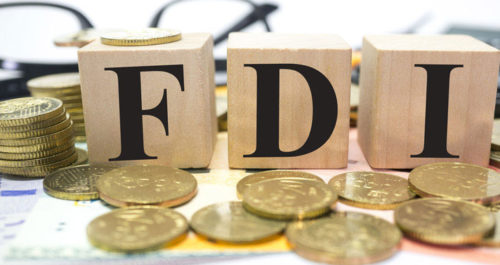
Last month, precisely on November 6, 2018, the United States Consul-General in Lagos, Mr. F. John Bray, was reported to have said $1.3 billion American businesses in Nigeria were being threatened as the harsh business environment that has prevailed in the country in the last few years has become a serious concern. The concern, said Bray, emanates from instability in the exchange rate, policy inconsistency, poor electricity, corruption, dearth of infrastructure, regulatory security issues, among others.
US investors in Nigeria are into two specific sectors – consumer products, oil and gas. These sectors are critical and dear to the economy of the country. Bray spoke recently at the Lagos 2018 International Investment Conference with the theme, Promoting Investment, Connecting Businesses, organized by the Lagos Chamber of Commerce & Industry (LCCI). He said that even though the Nigerian economy was not growing at the projected 2.3 per cent, unlike Cote d’Ivoire, which is growing at seven per cent, it still remains the toast of investors because of her large population.
He used the occasion to point out the challenges American investors are facing in Nigeria, especially on how policies are made and changed, noting that these have the potentials to discourage investors to the country. He also cited regulatory issues, such as the one involving MTN, which had led to the directive for the telecom company to return money allegedly transferred illegally out of the country without recourse to laid down procedures. This, he noted, also has the capacity to discourage any investor, as there seem not to be clear-cut adherence to the rule of law in order to protect investors. The U.S. envoy regretted that Nigeria has image problem, which needed to be addressed urgently.
Deputy High Commissioner, British High Commission in Nigeria, Ms Laure Beaufils has also had reasons to speak out on the inclement investment climate in the country. She said Nigeria has a large chunk of the £400 million United Kingdom investments in Africa, but regretted that UK investors were sometimes confused as to the risks inherent in investing in the country and how to mitigate them. She criticized the policy somersaults in the country, which she said was capable of discouraging any investor and cited the MTN issue with the regulatory authorities as an example. She noted that some regulatory decisions are not good for the development and growth of the economy especially in the area of job creation.
The Nigerian maritime industry is hemorrhaging today because of inconsistent fiscal policies and the unfriendly posture of government agencies towards investors. Little wonder so many importers and foreign concerns prefer to do business with Nigeria’s neighbors and look for smart ways of taking advantage of the country’s huge market. This they do without, as much as possible, exposing themselves to the risks inherent in Nigeria.
Nigeria’s policy summersault and seeming attack on investors are threats that should not be dismissed by a wave of hand, as the government is wont to do. The threats show that there are still huge cracks in the country’s Foreign Direct Investment (FDI) policy, which need to be urgently addressed if the country is to attract foreign capitals to her economy.
FDI is an indispensable element in economic development. There is hardly any country that does not need foreign capital for her economic development. Even the developed countries of the world received foreign capitals during their formative years and still do till date. For Nigeria, a sizeable inflow of FDI is very imperative in order to return her ailing economy to the path of sustainable growth and improve the quality of life of the citizenry.
The economic Eldorado recorded by the countries of the Southeast Asia could be traced to foreign capital. But, regrettably, in spite of the huge advantages Nigeria has over these countries, she is yet to attract FDI that can meaningfully impact in her economic development.
Recent reports of the National Bureau of Statistics (NBS) and the Central Bank of Nigeria (CBN) show continued drops in FDI inflow in the last three years; a development that portends serious danger to the country’s economic development, given the instability in the oil sector, which is the mainstay of the economy.
The factors that have accounted for the country’s low performance in foreign direct investment include weak infrastructure, poor policy implementation, corruption, and insecurity, among others. The Organised Private Sector (OPS) has repeatedly pointed out that weak infrastructure, including epileptic power supply and policy summersault are the strongest variables in the high cost of doing business in Nigeria. This has been confirmed by the successive Ease of Doing Business reports on the country.
The marginal drop in the 2019 Ease of Business report is unacceptable and calls for enunciation of the right policies to boost the country’s investment climate. There is equally the need to grow investment friendly institutions in the country.
The emphasis should be to make the country an FDI destination. The infrastructure problem is critical in the country while the issue of power is still far from being addressed. While government says it is working on the ease of doing business; the efforts cannot be complete without policy consistency and the right attitude towards investors.